#WeAreArrested
Venue: Arcola Theatre, London
Dates of run: Until Dec 7
Co-production with Royal Shakespeare Company
Barbara Lewis
About Barbara Lewis
Posts by Barbara Lewis:
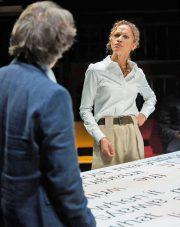
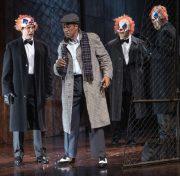
Rigoletto,
Composer: Verdi
Producer: Welsh National Opera
By Barbara Lewis • music, opera, performance, theatre, year 2019 • Tags: Barbara Lewis, music, opera, performance, theatre

William Blake
Venue: Tate Britain, London, until February 2
Curated by Martin Myrone and Amy Concannon
By Barbara Lewis • art, drawing, exhibitions, painting • Tags: art, Barbara Lewis, drawing, exhibitions, painting

Funny, reassuring and irrepressibly warm, the West End version of Only Fools and Horses is proving to be the right musical at the right time.
By Barbara Lewis • musicals, theatre, year 2019 • Tags: Barbara Lewis, musicals, theatre
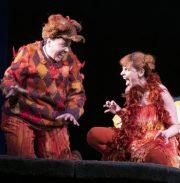
In his final decade, the Czech nationalist Janacek, found a new love interest and produced five major operas. The most accessible and refreshing is The Cunning Little Vixen (premiered in 1924), with its comic acceptance – like late Shakespeare – of the redemptive power of love and renewal, and its tragic awareness of the forces of raw nature and of life’s disappointments.
By Barbara Lewis • music, opera, theatre, year 2019 • Tags: Barbara Lewis, music, opera, theatre
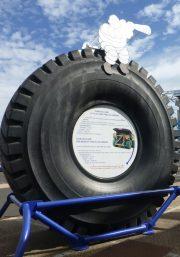
In 1894, Edouard Michelin, the fine artist of a gifted family, looked at a pile of tyres and said to his engineer brother André: “With arms and legs, that would look like a man.”
By Barbara Lewis • exhibitions, technology, travel, year 2019 • Tags: Barbara Lewis, exhibitions, technology, travel

Marcus Brigstocke makes his play-writing and directorial debut as actors Bruce and Sam Alexander, father and son in real life, give drama and poignancy to a story that begins with the funeral of the father.
By Barbara Lewis • plays, theatre, year 2019 • Tags: Barbara Lewis, plays, theatre

Opera and cabaret singer Melinda Hughes lost her mother in June. Two months on, she has immortalised her in a song and is finding catharsis in a satirical take on the world.
By Barbara Lewis • music, performance, theatre, year 2019 • Tags: Barbara Lewis, music, performance, theatre
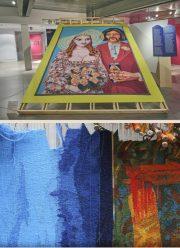
For painter Victoria Crowe, who was born in England but made her home in Scotland, tapestry produces richer, warmer versions of the colours paintings reflect. For Grayson Perry, tapestry is the medium to explore his fascination with class, craft and community.
By Barbara Lewis • art, exhibitions, tapestry, year 2019 • Tags: art, Barbara Lewis, exhibitions, tapestry
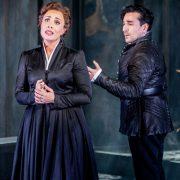
Don Carlo – or Don Carlos – in history was the mentally unstable son of Philip II of Spain whose brief betrothal to the woman his father later married and contacts with Protestant rebels in the Low Countries provided ammunition for the “black legend” propaganda whipped up by the opponents of his father’s rule.
By Barbara Lewis • music, opera, theatre, year 2019 • Tags: Barbara Lewis, music, opera, theatre

Chilean singer-songwriter, poet, cult figure Violeta Parra’s most famous work “Gracias a la vida” can be viewed as an outpouring of gratitude – or as a suicide note.
By Barbara Lewis • music, plays, theatre, year 2019 • Tags: Barbara Lewis, music, plays, theatre
Tomar and the Knights Templar, Portugal. Under vows of holiness, poverty and chivalry, the Order of the Knights Templar, founded around 1120 to protect pilgrims to the Holy Land, achieved much else besides.
By Barbara Lewis • history, travel, year 2020 • Tags: Barbara Lewis, history, travel